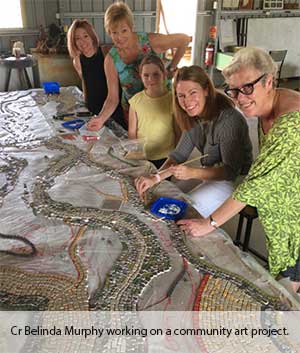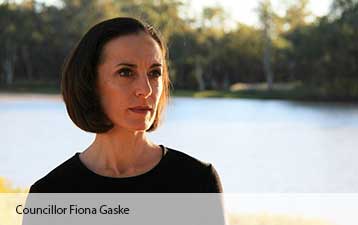This story, by Alison Hockings, is from the Feb - March Council Leader Magazine. Keep an eye out for it here or contact us if you would like to receive a hard copy.
Councils throughout Queensland are benefiting from a wave of women embracing the challenge of leading their local communities; these women bring strength, diversity and inspiration for the next generation of women.
Women in leadership roles are on the rise throughout Queensland’s 77 councils. At present women make up 33 per cent of councillors, 20 per cent of mayors and 16 per cent of all chief executives.

How does local government compare?
Although some progress has been made in evening up the gender divide in positions of leadership in Australia, data released last year on the workforce continues to point to a glass ceiling at the highest level.
Women accounted for just 9 of the CEOs in Australia’s largest 200 companies in 2017.
Data released by an ASX Senior Executive Census also revealed that 41 of the nation's largest companies didn’t have a woman on their executive leadership.
Politically, gender parity across representation at a state and federal level is mixed.
Following the 2016 Federal Election, the total number of women in Parliament has risen slightly from 69 (31 per cent) to 73 (32 per cent).
Although in 2015 the Queensland Government became the only Australian government to have 50 per cent of ministry positions held by women, in the recent Queensland election only about 30% of election candidates were female.
Local leaders
Cr Belinda Murphy, Mayor of Mckinlay Shire Council, said it’s exciting to see more women stepping into leadership roles – both in council and across the community.
“It’s sending a really great message to our younger generation, especially our younger girls,” Cr Murphy said.
“In a place like Julia Creek, all the lead roles from the principal of the school, to the agri business manager, to the head of the kindergarten, to the director of corporate and community services, they’re all females.
“That’s wonderful to see. Even on the council this term we’re a bit lopsided with three females to two males – but we all work together well.
“I would recommend that young women get involved in council. To serve your community and see the difference you can make at the grassroots level is one of the best things you can do.”
Cr Jenny Hill was elected Mayor of Townsville in 2012 and has worked in many male-dominated industries during her career.
In high-school Cr Hill was the only female studying chemistry and later, worked as a scientist in a mining laboratory, the Department of Primary Industries and was the first female to complete full infantry training in the Army Reserves.
Cr Hill said it was challenging as the only woman in the Army Reserve but the experience made her stronger.
“What it’s done is made me tougher and a bit more resilient. Sometimes you have to go through a ‘baptism of fire’ to be able to withstand pressures as you move through life,” Cr Hill said.
Cr Hill said more quality women were needed in government roles to help break down the barriers.
“If you feel you really want to do something for your community, local government is a great way to do it," she said.
“Give us a call. We’re always keen to mentor people in government, particularly young women.”
Cr Fiona Gaske, Deputy Mayor of Balonne Shire Council said she ran for local government because she saw the need for more women, a younger demographic and people who could add a professional skillset.

“I come from a rural community so inevitably there were going to be a lot of farmers who are on your council.”
Cr Gaske said local government provided an opportunity to make a difference for your community and the chance to have a real conversation with them.
“You’re not just formulating policy up in the stratosphere. You see how it impacts and you see the change,” Cr Gaske said.
“I would encourage all women, because around the table, just that voice makes a difference to how decisions are made.
“So, don’t hold back. This is a great opportunity to stand up and have your voice heard and make a real difference in your community.”